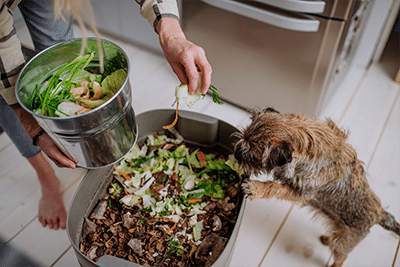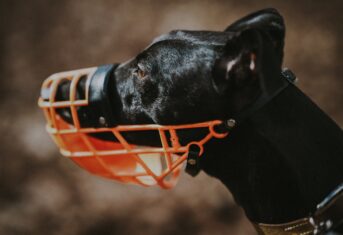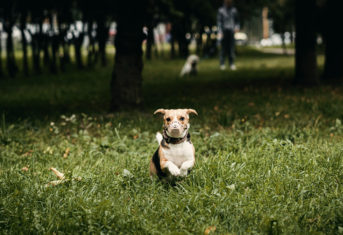NYC’s New Composting Law Could Be Dangerous for Dogs

NYC’s New Composting Law Could Be Dangerous for Dogs
Last month, the New York City Council voted to make composting of organic waste mandatory in the city’s five boroughs, starting with Brooklyn and Queens in October and expanding to all boroughs by the end of 2024. The exact details and timing of the plan are still being legislated, but New Yorkers can expect a composting program in the next few years. This will divert a significant amount of waste from landfills, and anything we can do to decrease the amount of waste going to our landfills is, as Martha Stewart would say, “A good thing.” However, this good thing does pose some risk for our canine friends.
The New York Times article reminded me of one of my favorite patients, who got into a compost pile and was “sick as a dog.” Today’s blogpost will focus on the risks of compost ingestion in dogs.
My Canine Patient Poisoned by Compost
Bear, a handsome spaniel, was roaming on the property where he lives and found an intriguing snack in the compost pile. This resulted in a two-week illness that included vomiting, diarrhea, a poor appetite and multiple trips to the nearby veterinarian. Ultimately Bear was diagnosed with Campylobacteriosis, likely from poultry scraps in the compost.
Intestinal Bacterial Infections from Compost Ingestion
Campylobacteria is a group of bacteria known to cause intestinal infections. It’s one of the most common causes of intestinal infection in people worldwide, according to the World Health Organization. Infections occur most commonly from eating uncooked poultry.
E. coli is another bacteria that causes intestinal infection and can be found in compost. A Canadian epidemiologic study of dogs frequenting dog parks showed that E. coli was found in these dogs’ feces. One risk factor identified for these dogs was exposure to compost. This finding suggests these dogs may have acquired the bacteria by eating compost.
Canine Nose and Sinus Infections from Compost Ingestion
Aspergillus is a fungus often found in decaying vegetation and compost piles. At the Schwarzman Animal Medical Center, we diagnose numerous dogs each year with nasal sinus aspergillosis. Veterinarians in California studying the distribution of aspergillosis in their state identified a higher incidence in areas with active recycling of food, green, wood, biosolid and agricultural waste, as defined by CalRecyle.
Keeping Your Dog Safe Around Compost
When the New York City composting program goes into effect, I worry about an increase in the conditions mentioned above. Dog owners will need to be extra vigilant about storing their compost and around the new smorgasbord of sidewalk treats once the composting bins are out for collection.
One place to safely store compost would be in the refrigerator or freezer until you deposit it in a communal compost bin.
When walking your dog, keep them leashed (always a good idea), and even consider a muzzle if they’re especially insistent on sidewalk snacking.

































